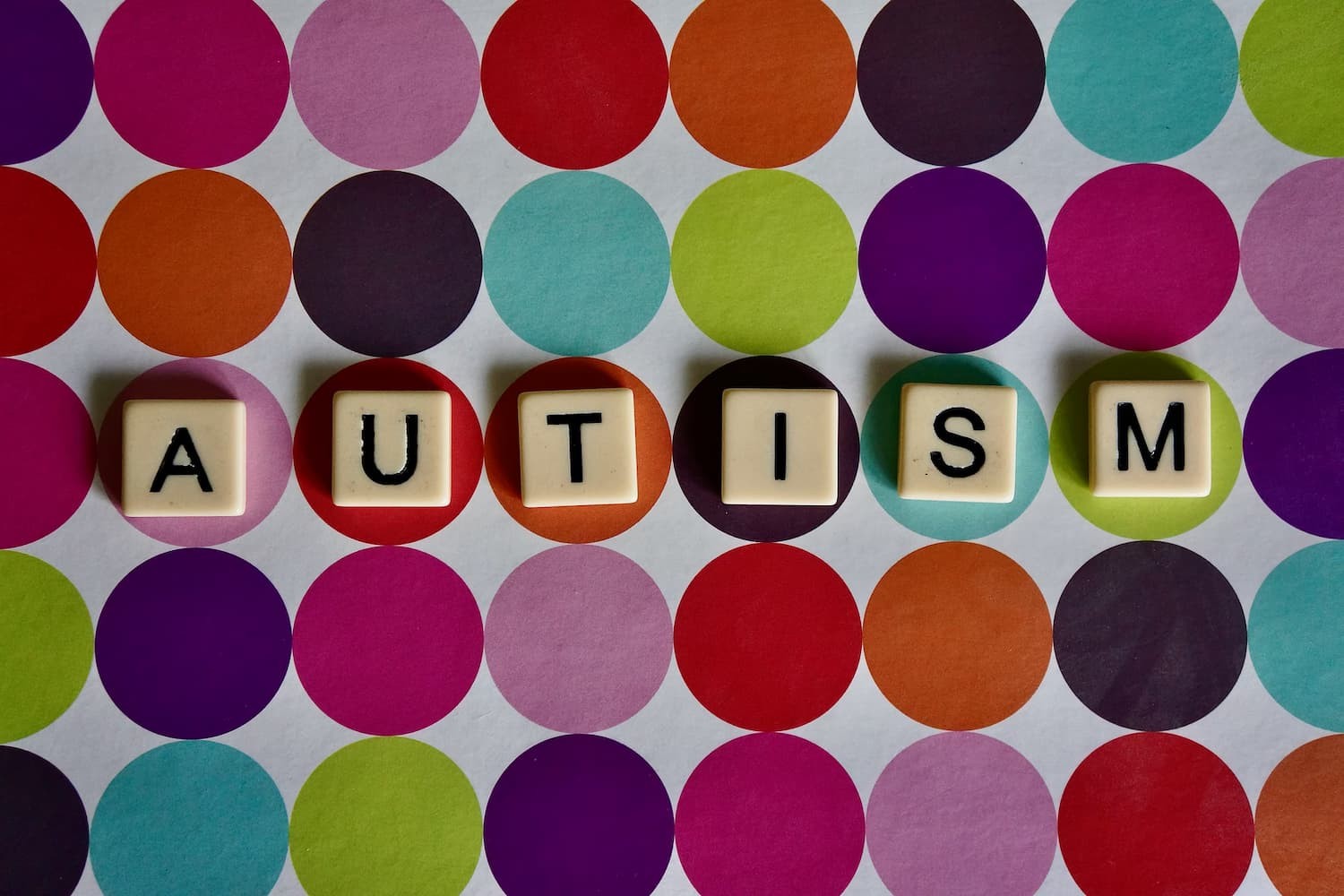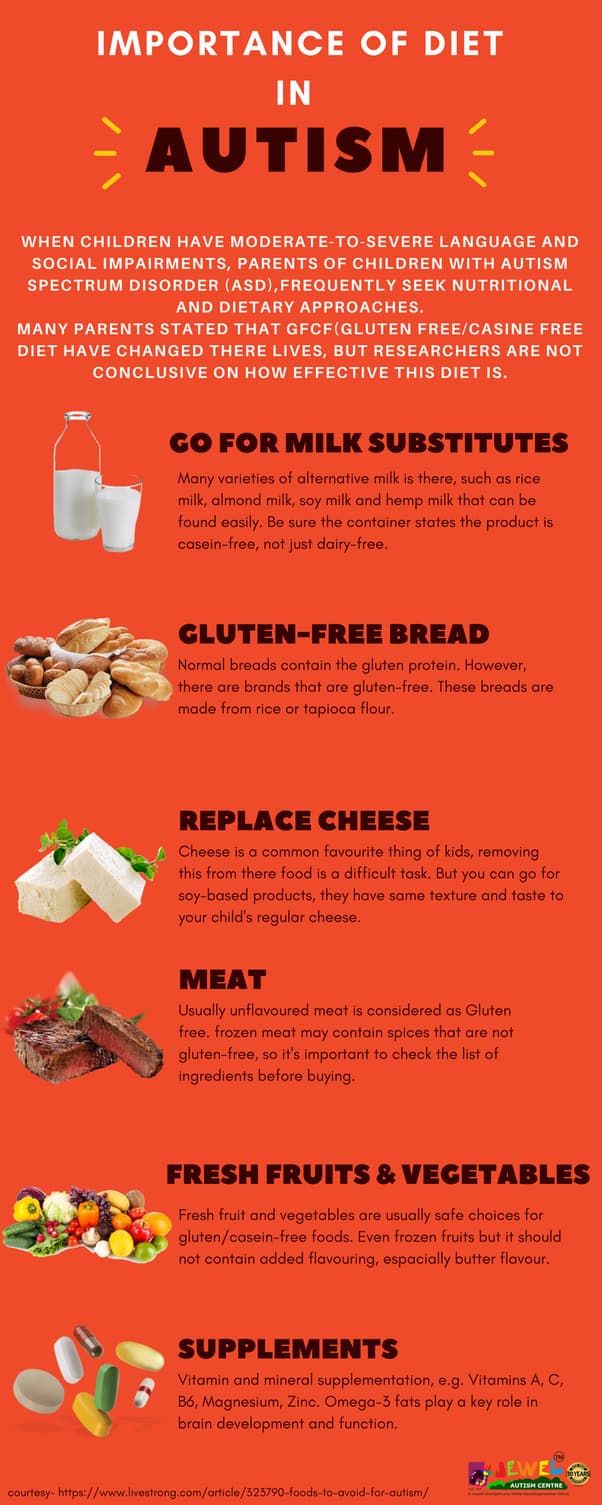
Autism spectrum disorder (ASD) is a neurodevelopmental disorder that affects language skills, causing social communication difficulties and preventing people with this mental health and developmental disorder from living their lives to the fullest. Autism is characterised by difficulty or an inability to create normal social relationships, compulsive and/or ritualistic behaviour, and sometimes a failure to develop normal levels of intelligence.
It is more common in males than in females. Symptoms do vary greatly, but they always manifest no later than the age of three. If your child has been diagnosed with autism spectrum disorder, there is no need to worry. There are natural and nutritional treatments that you can turn to for help.
Health Problems Commonly Exhibited by Autism Sufferers
Children with autism spectrum disorders have significant physical and mental health challenges in addition to developmental delays. Many experience feeding problems, such as gobbling non-food items or being highly picky about what they eat, which lead to nutritional deficiencies, gingivitis, or other types of periodontal disease. Some of the common health problems exhibited by a child with autism include:
- an inability or difficulty to absorb gluten or casein
- low levels of stomach acid and pancreatic enzymes
- high levels of toxins
- high levels of candida, Aspergillus, and parasites
- high levels of heavy metals
This is why the initial treatment of any person suffering from autism is to change their diet and detox the body. The younger the person is when the treatment is undertaken, the more likely it is to succeed.
Nutrition and Autism – an Overview
Protein is essential in people who suffer from autism as it is necessary to supply the body with amino acids – which help to build neurotransmitters and many other key elements in the body. Reducing the amount of sugar that an autistic person has can help to stop rapid changes in blood sugar levels, which can contribute to problems such as irritability and difficulty concentrating. People who are sensitive to artificial colours and flavourings may find that they suffer from more behavioural problems. Pesticides, which can be found on fruits and vegetables that have not been washed correctly, can contain toxic metals and are suspected of being one of the causes of autism.
Essential Fatty Acids and Autism
Essential fatty acids or EFAs are vital for humans, as they are found in every cell. Also, twenty percent of a child’s brain is made up of EFAs. Breastfeeding is ideal for children as the breast milk is rich in the EFAs that the child needs, but if you are feeding your baby on formula, note that most formulas do not contain EFAs.
The two most common types of EFAs are omega 3 and omega 6. Omega-3 fatty acids promote brain function, which can help autistic children focus and concentrate better. Omega-6 fatty acids, on the other hand, regulate serotonin levels, increase dopamine production and improve the brain's nerve cell communication. The body cannot make these so they must be taken from a dietary source.
If the diet is low in EFAs, mental disorders such as Rett’s syndrome, depression and bipolar disorder may result. Studies have shown that children with autism have less omega 3 fatty acids than the normal population. Thus, it is recommended that children eat fish that are high in EFAs, such as salmon, or take a supplement of fish oil.
A Gluten and Casein Free Diet for Autism
Gluten is a protein that is found in wheat, rye, barley and oats, while casein is a protein that is found in all dairy products. These two proteins are common food allergens – especially amongst people that suffer from autism. Certain peptides that come from gluten and casein can have a significant effect on a person’s behaviour, causing behavioural problems such as sleepiness, lack of attention, aggression and self-abuse.
To treat this, all gluten and dairy products will need to be avoided. Even the smallest amount can cause problems in a sensitive individual. Digestive enzymes may be useful, but they will not be as effective as avoiding gluten and casein altogether. If you are following a dairy-free diet, remember to include calcium and vitamin D supplementation in addition to foods rich in these important vitamins and minerals to ensure that the person is getting enough of them.
Source: Qoura
Food Allergies and Autism
Many people that suffer from autism also suffer from food allergies, due to abnormalities in either their digestive or immune systems, if not both. If the food is not broken down correctly into its individual components, such as sugars and amino acids, the partially digested food may pass into the bloodstream and cause an allergic reaction. Some ways of testing for food allergies include an elimination diet, skin testing and blood tests.
Once the food responsible for the allergy has been identified, it is a simple matter of avoiding it. Digestive enzymes may be useful in order to help the person to digest the food more fully.
Autism and Visual Problems
Eye movement control is a basic skill that is needed for effective vision. It is vital for eye contact which, in turn, is vital for social interactions. People with autism commonly use a tool called “gaze avoidance” in order to stop their brains from becoming overloaded with information.
Eye movements show where a person is directing their visual attention. In autism, if you improve the efficiency of the sufferer’s eye movements, you can help to train their brain to pay attention. Autistic people may not be able to express when they are suffering from visual problems, such as sore eyes, blurred vision and so forth. Therefore, it is up to their healthcare provider to look for the visual signs of such problems which may include:
- squinting or eye closing
- staring at things
- looking at things sideways
- sensitivity to light
- rubbing or pushing the eye
- bumping into things
- looking at things quickly
- makes their way around more by feeling things than seeing them
Because most people with autism are able to see clearly but cannot get meaning from the world, it is possible to use tools such as lenses and prisms to help to alter their perception of space. Used correctly, these tools can help to bring together a world that previously appeared fragmented.
Syntonics is another visual tool that can be used. This is where coloured light is applied through the eyes. Hypersensitivity is one of the hallmarks of autism and syntonics can be used to help reduce this. Specific colours have calming effects on a person, and using these colours can help other therapies to become more effective.
Visual Cognitive Therapy or VCT helps a person to change their perception of the world through a safe room. VCT uses tools such as lenses, prisms and balance movement to direct attention and change awareness. The main goals of VCT are feedback, self-awareness and attention.
Other Therapies That are Useful for Autism
As more parents of children with autism begin to look into natural treatments, they are finding success in employing holistic ways to control the symptoms and enhance their children's quality of life. Complementary therapies for autism treatment can greatly improve the lives of autistic children and adults. These treatments treat autism from a holistic perspective, focusing on changing diet, increasing physical activity, receiving acupuncture and massage therapy and treating behavioural problems. If you're looking for an effective therapy for autism, the following can be useful in treating and managing the condition:
Applied Behavioural Analysis (ABA)
This is the oldest treatment for autism, and it is a system of reward-based training that focuses on teaching particular skills.
Speech Therapy
It is commonly used as almost all people with autism have problems with speech and language. Many autistic people are non-verbal or have trouble using speech, while others have trouble using speech in order to build social relationships.
Occupational Therapy
This helps the sufferer to improve their daily living skills. Many autistic people have delays in their fine motor skills and this therapy can improve that. People with autism spectrum disorders can benefit from occupational therapy because it gives them the tools and skills they need to live more independent and satisfying lives.
Social Skills Therapy
One of the hallmarks of autism is the lack of social and communication skills. This form of therapy aims to improve these skills so that sufferers can do things such as connecting with people and having a conversation.
Play Therapy
Children that suffer from autism need help in learning how to play. By focusing therapy on this area, it can help with building speech, communication and social skills.
Behavioural Therapy
People with autism are often frustrated and misunderstood as they have difficulty in communicating their needs. Behavioural therapists work out what is behind the negative behaviours and suggest ways to improve this.
Light Therapy
Exposure to specific types of light has been shown in scientific studies to increase serotonin levels in the brain, which improves symptoms of autism by reducing anxiety, aggression, lethargy and repetitive behaviours.
Music Therapy
This form of natural therapy helps to alleviate autism symptoms by increasing auditory awareness, social skills, as well as improving sleep patterns by using specific types of sound frequencies to induce different emotional states.
Art Therapy
Children with autism may find it easier to express themselves and communicate with others through a creative platform. Art therapy promotes sensory stimulation through the use of different materials like clay, pens or even sand, to give children an outlet for their creativity while providing sensory input.
Homoeopathy
Homoeopathic remedies can no doubt be used in the treatment of autism because of their ability to boost the human body's immune system and help with digestive problems caused by autism spectrum disorder symptoms.
Herbal Remedies
Certain medicinal herbs, such as chamomile and St. John's wort, can help address the core symptoms of autism, including anxiety, gastrointestinal problems, sleep disturbances and hyperactivity. They also reduce inflammation in the brain that is associated with autism spectrum disorder (ASD).
It's no secret that living with autism can be difficult and exhausting for children with autism spectrum disorders and their parents. However, using non-traditional autism treatments, such as those listed above, may help to improve the quality of life for those who suffer from the condition.
Originally published on May 14, 2008









